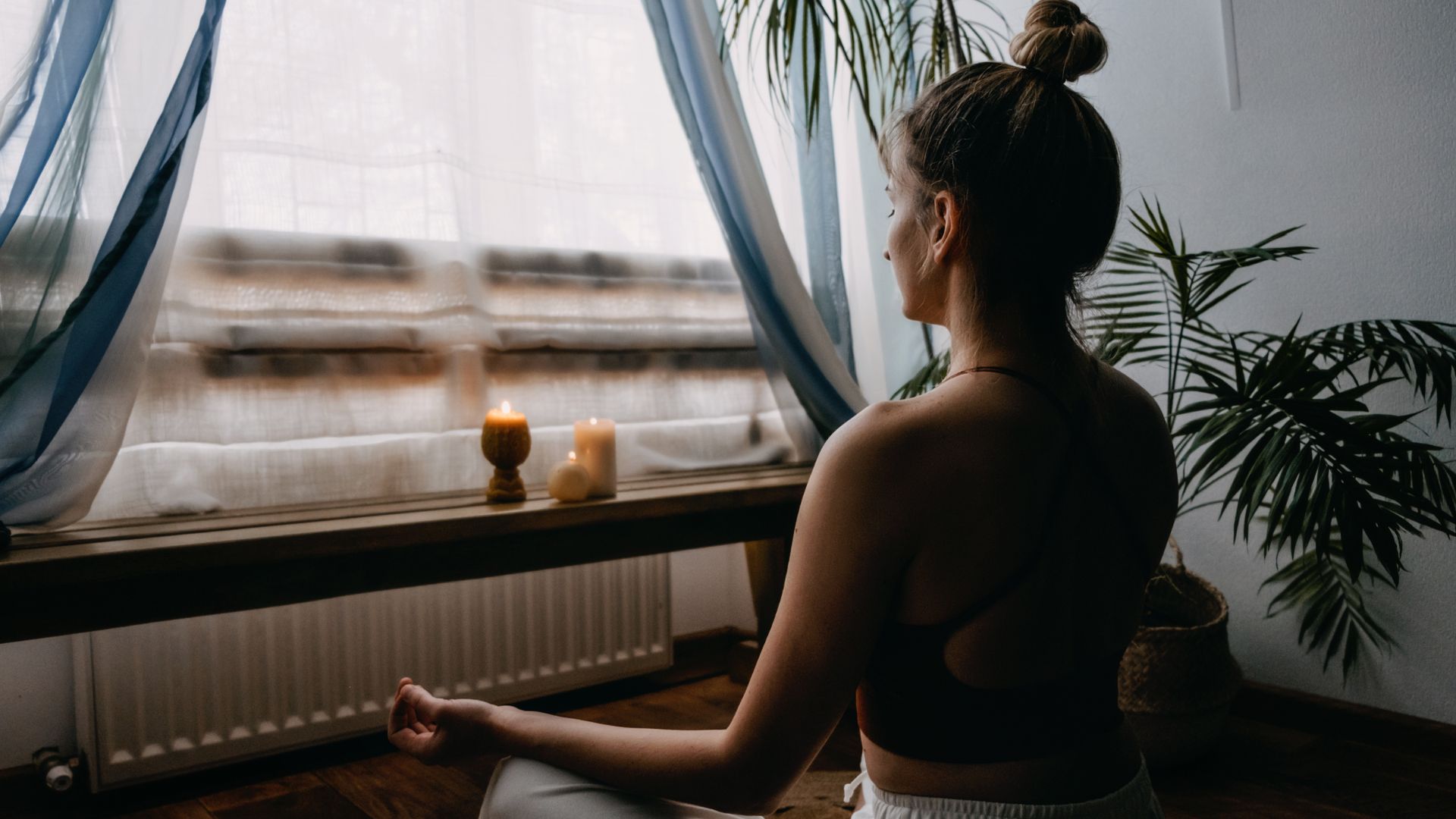In a world that moves at lightning speed, with endless to-do lists and constant digital distractions, finding moments of peace can feel like an impossible dream. Yet, more people than ever are turning to meditation as a way to reclaim balance and clarity. Meditation isn’t just a buzzword or a fleeting trend—it’s a practice with deep historical roots and proven benefits for mental, emotional, and physical well-being.
This comprehensive article explores the importance of meditation, the science behind its benefits, and practical ways to integrate it into your daily life.
What Is Meditation?
At its core, meditation is the practice of training your mind to focus and redirect your thoughts. While there are many techniques and traditions, they all share the same goal: cultivating awareness and achieving a sense of inner calm.
Meditation has been practiced for thousands of years, originating in ancient traditions like Buddhism, Hinduism, and Taoism. Over time, it has evolved into a secular practice embraced by millions worldwide for its profound effects on the mind and body.
Why Is Meditation Important?
Meditation addresses one of the most pressing issues of modern life: the relentless bombardment of stress, overstimulation, and the feeling of being disconnected from ourselves. Here’s why meditation is more relevant now than ever:
1. Combating Stress
Chronic stress is a silent killer, linked to heart disease, anxiety, depression, and a host of other health issues. Meditation provides a counterbalance by calming the mind and relaxing the body.
2. Fostering Mental Clarity
With endless information at our fingertips, mental clarity often gets lost in the noise. Meditation helps declutter the mind, allowing you to focus on what truly matters.
3. Enhancing Emotional Resilience
Life is unpredictable, and emotional ups and downs are inevitable. Meditation strengthens your ability to handle challenges with grace and equanimity.
4. Building a Connection with Yourself
In the chaos of daily life, it’s easy to lose touch with your inner self. Meditation creates space to reconnect with your thoughts, emotions, and values.
The Science-Backed Benefits of Meditation
Extensive research has confirmed what ancient practitioners have known for centuries: meditation delivers powerful benefits for the mind and body. Let’s break it down.
1. Reduces Stress and Anxiety
Meditation lowers cortisol levels, the hormone associated with stress. Studies show that mindfulness meditation significantly reduces symptoms of anxiety disorders. By teaching the mind to observe thoughts without judgment, meditation helps you break free from cycles of worry and fear.
2. Improves Focus and Concentration
Meditation enhances cognitive functions like attention and memory. Techniques such as focused-attention meditation train your brain to concentrate on a single point, which can carry over into your work and personal life.
3. Promotes Emotional Health
Meditation fosters positive thinking and reduces negative emotional states. Loving-kindness meditation, for example, is specifically designed to cultivate compassion and forgiveness, leading to improved relationships and greater overall happiness.
4. Boosts Physical Health
Regular meditation can lower blood pressure, improve sleep quality, and even boost the immune system. The relaxation response triggered by meditation reduces physical tension and improves overall well-being.
5. Enhances Creativity
By quieting the inner critic and opening the mind, meditation creates the mental space needed for creative ideas to flourish. Many successful innovators, from Steve Jobs to David Lynch, have credited meditation with enhancing their creativity.
6. Encourages Self-Awareness
Meditation teaches you to observe your thoughts and emotions without becoming overwhelmed by them. This heightened self-awareness helps you identify harmful patterns and make conscious choices.
7. Cultivates Patience and Tolerance
Regular practice makes you less reactive and more patient. Meditation encourages you to respond to situations thoughtfully rather than impulsively.
How to Get Started with Meditation
Many people shy away from meditation because they think it requires hours of sitting in silence or achieving a mystical state. The truth is, meditation is accessible to everyone, and you can start small. Here’s how:
1. Choose a Style of Meditation
There are many types of meditation, so experiment to find what resonates with you. Some popular techniques include:
• Mindfulness Meditation: Focus on the present moment without judgment.
• Guided Meditation: Follow a recorded guide through relaxation and visualization.
• Transcendental Meditation (TM): Repeat a mantra to settle the mind.
• Loving-Kindness Meditation: Cultivate feelings of compassion and goodwill.
• Body Scan Meditation: Bring awareness to different parts of the body.
2. Set Realistic Goals
Begin with just 5–10 minutes a day. As you become more comfortable, you can gradually increase the duration.
3. Create a Dedicated Space
Find a quiet and comfortable place where you won’t be disturbed. Use cushions, a chair, or any setup that supports your posture.
4. Focus on Your Breath
One of the simplest forms of meditation is focusing on your breath. Observe the sensation of the air entering and leaving your nostrils, and gently bring your attention back when it wanders.
5. Use Technology Wisely
Apps like Headspace, Calm, and Insight Timer offer guided meditations and tools for beginners. These can be a helpful way to stay motivated and learn new techniques.
Meditation in Action: How Successful People Use It
Many of the world’s most successful individuals incorporate meditation into their daily routines. Here’s how they do it:
1. Oprah Winfrey
Oprah describes meditation as a way to connect with her inner self and find stillness amidst a busy life. She practices Transcendental Meditation daily and encourages others to do the same.
2. Ray Dalio
The billionaire investor credits meditation with improving his clarity and decision-making. He practices TM twice a day for 20 minutes.
3. Ariana Huffington
The founder of The Huffington Post uses meditation to combat stress and maintain her energy levels. She often speaks about how mindfulness has transformed her life.
4. LeBron James
The NBA superstar incorporates meditation into his mental conditioning, using visualization techniques to stay focused and perform under pressure.
5. Steve Jobs
Known for his innovation and creativity, Jobs practiced Zen meditation to calm his mind and approach problems with clarity and insight.
Making Meditation a Lifelong Habit
Meditation is not a one-time fix; it’s a lifelong practice that grows and evolves with you. Here are some tips to keep it sustainable:
• Anchor it to a Routine: Pair meditation with an existing habit, like brushing your teeth or waking up in the morning.
• Celebrate Small Wins: Acknowledge your progress, even if it’s just sitting for a few minutes each day.
• Stay Curious: Explore different meditation styles and deepen your practice through books, courses, or retreats.
• Be Kind to Yourself: Meditation is not about perfection. If your mind wanders, gently bring it back without judgment.
Meditation as a Path to Transformation
Meditation is more than a tool for stress relief—it’s a transformative practice that can enhance every aspect of your life. By cultivating mindfulness, emotional balance, and inner peace, you not only improve your own well-being but also create a ripple effect that benefits those around you.
Whether you’re a beginner or a seasoned practitioner, meditation offers a powerful way to navigate life’s challenges and connect with your deeper self. So, take a moment, breathe, and begin your journey to a calmer, more centered life today.





